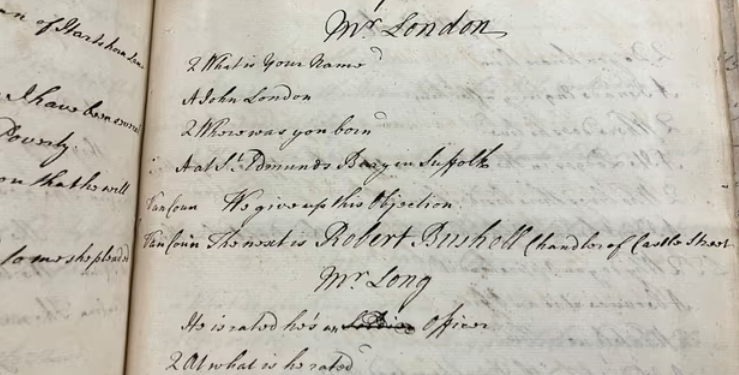Oct 24, 2024 Story by: Editor
A single word has led to a groundbreaking discovery that reshapes our understanding of British history.
Historically, composer and abolitionist Charles Ignatius Sancho was believed to be Britain’s first Black voter, participating in the 1774 Westminster election due to his status as a property owner in Mayfair.
However, a surprising find by Dr. Gillian Williamson, a historian delving into Georgian London’s lodgers at the British Library, reveals that a Black man had voted 25 years earlier.
This finding highlights John London, a pub landlord in the capital, who cast a vote in 1749. His story sheds new light on an era where London’s Black population was around 10,000, and though the democratic process was limited, it was dynamic.
Dr. Williamson noted that as a Westminster ratepayer, London was among only 14% of people entitled to vote. However, during the heated Westminster by-election in November 1749, his right to vote came under scrutiny.
The winner, Viscount Trentham, secured the seat by a slim margin of 157 votes, while his opponent, Sir George Vandeput, challenged the result through a process called “scrutiny,” in which votes’ validity could be disputed. This left written records of the case.
Since London had voted for Trentham, his vote faced a challenge, initially on the grounds of not being a ratepayer. As a ratepayer, London paid a parish tax based on property value, which funded services like street cleaning, lighting, and support for the poor.
Once confirmed as a ratepayer, his eligibility was questioned again, this time based on race, as a witness for Vandeput referred to him as a “blackamoor.”
“It leapt off the page,” said Williamson, who was researching instances of lodgers being coerced into voter fraud, referring to the term that seemed intended to imply that London was foreign-born and thus ineligible.
“[It’s] a racist incident at a certain level, the idea being that ‘although he’s got his business and lives here and pays rates, he’s not quite one of us,’” Williamson explained to The Guardian, having shared her findings on the History of Parliament Trust website.
Yet, London defended his vote in person, confirming he was born in Bury St Edmunds, thereby affirming his right to vote and the election result.
Records show that he operated his pub for two years, but other details of his life remain sparse until he was admitted to a workhouse in 1770 with a fever. Williamson found that he had named his pub “The Blackamoor’s Head.“
“I think that was an interesting reflection of his personality, his confidence, that he was taking a derogatory term and using it, saying: ‘It’s the black man’s pub,’” Williamson observed. “He has a business, he goes out to vote, he sticks up for himself.”
“He’s the first-known black voter – in some ways unexceptional, in some ways exceptional,” Williamson continued, noting that his story challenges assumptions about Black life in Georgian London. “If you are a pub landlord, people know who you are. Keeping good order, stopping fights, you have to do all these things in Georgian London. [This discovery] helps us see someone in a more rounded way, as someone with status.” Source: The Guardian

















